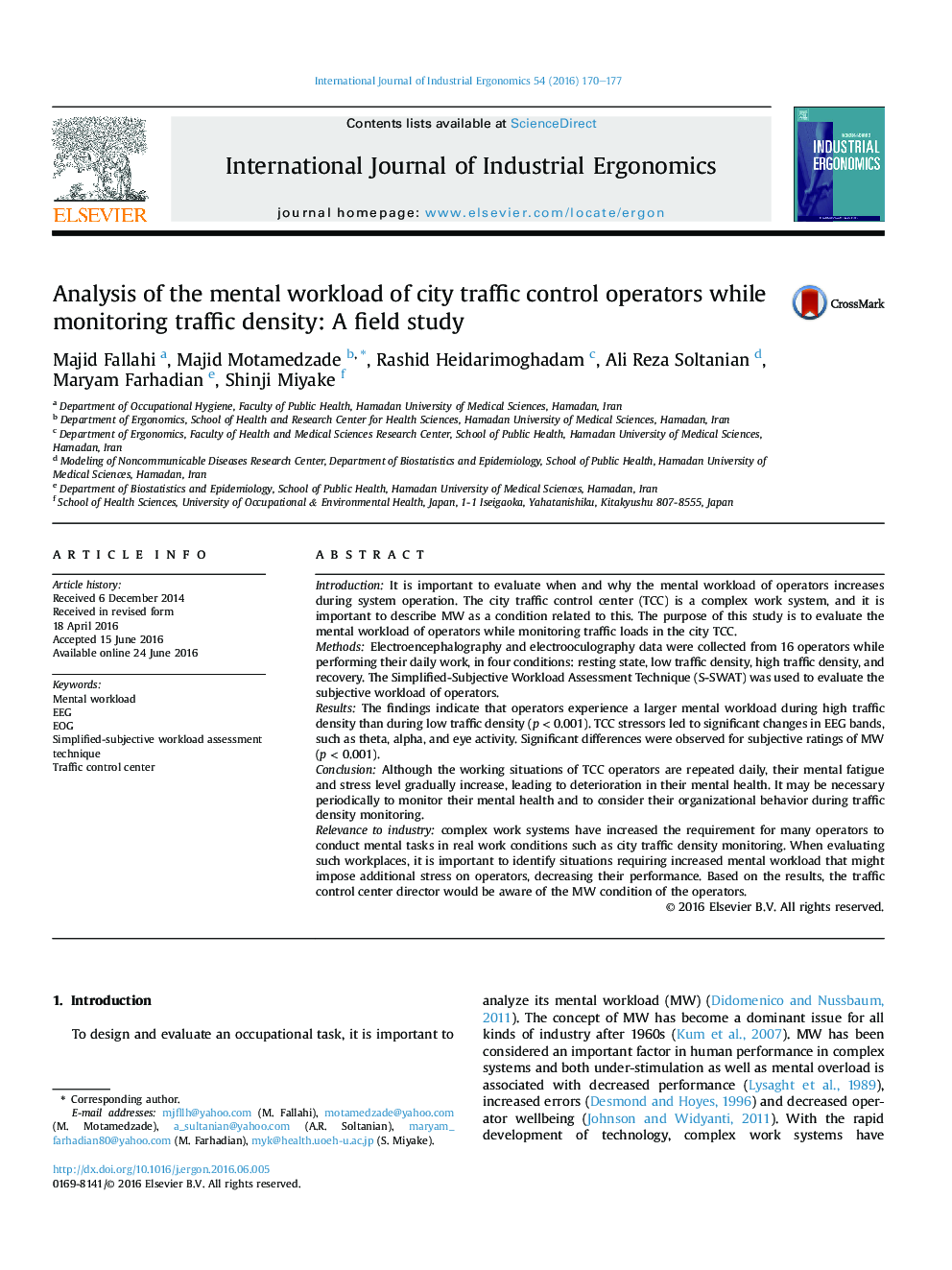| کد مقاله | کد نشریه | سال انتشار | مقاله انگلیسی | نسخه تمام متن |
|---|---|---|---|---|
| 1095795 | 1487421 | 2016 | 8 صفحه PDF | دانلود رایگان |
• This study evaluates the mental workload (MW) of traffic control operators using physiological indices and S-SWAT.
• Increasing traffic density may affect EEG bands and also eye activity of operators, and their subjective experience of MW.
• The shift work probably does not affect physiological responses.
• Evaluating MW help identify situations with more MW, which impose additional stress on operators, decreasing their performance.
IntroductionIt is important to evaluate when and why the mental workload of operators increases during system operation. The city traffic control center (TCC) is a complex work system, and it is important to describe MW as a condition related to this. The purpose of this study is to evaluate the mental workload of operators while monitoring traffic loads in the city TCC.MethodsElectroencephalography and electrooculography data were collected from 16 operators while performing their daily work, in four conditions: resting state, low traffic density, high traffic density, and recovery. The Simplified-Subjective Workload Assessment Technique (S-SWAT) was used to evaluate the subjective workload of operators.ResultsThe findings indicate that operators experience a larger mental workload during high traffic density than during low traffic density (p < 0.001). TCC stressors led to significant changes in EEG bands, such as theta, alpha, and eye activity. Significant differences were observed for subjective ratings of MW (p < 0.001).ConclusionAlthough the working situations of TCC operators are repeated daily, their mental fatigue and stress level gradually increase, leading to deterioration in their mental health. It may be necessary periodically to monitor their mental health and to consider their organizational behavior during traffic density monitoring.Relevance to industrycomplex work systems have increased the requirement for many operators to conduct mental tasks in real work conditions such as city traffic density monitoring. When evaluating such workplaces, it is important to identify situations requiring increased mental workload that might impose additional stress on operators, decreasing their performance. Based on the results, the traffic control center director would be aware of the MW condition of the operators.
Journal: International Journal of Industrial Ergonomics - Volume 54, July 2016, Pages 170–177
